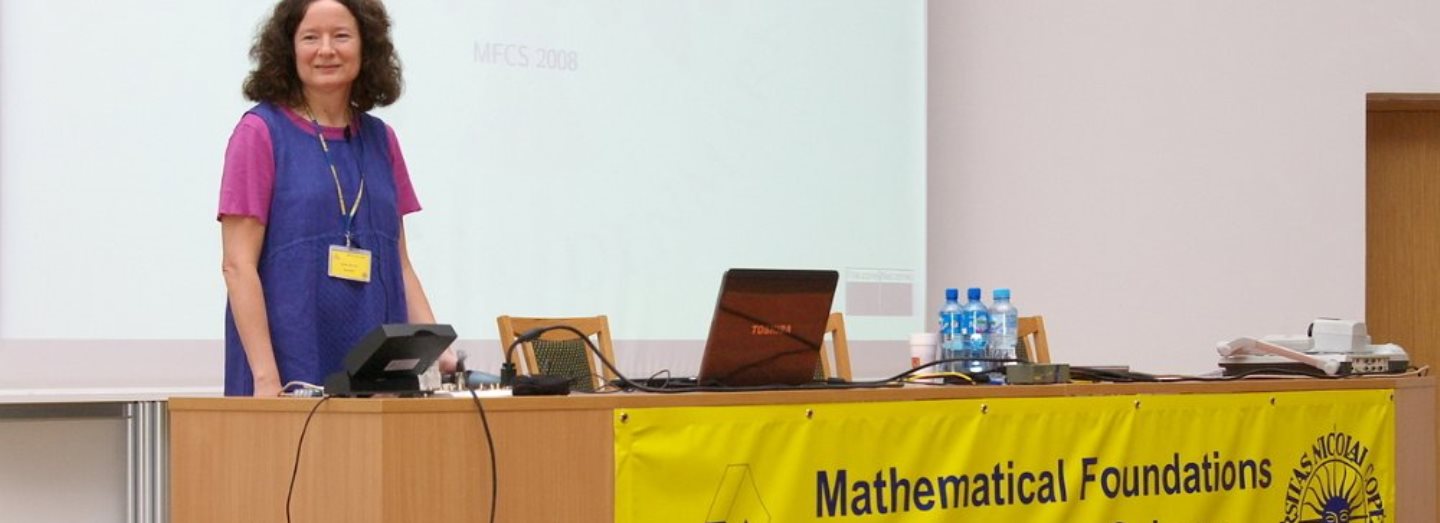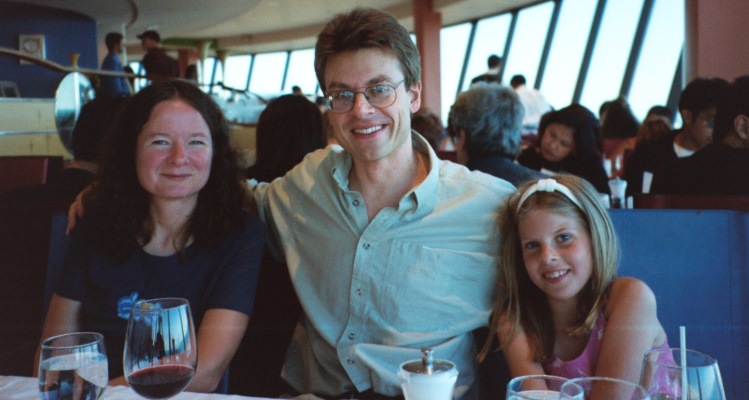
Finding the right niche
Newly appointed professor Joan Boyar from IMADA is not a fan of the study progress reform. On the contrary, she believes that it pays to allow young people time. She herself broke the mould by switching to a different study programme when she started at university with the dream of becoming a researcher.
By Birgitte Svennevig
Joan Boyar, who originally comes from Chicago in the USA, was still fairly young when in 1968 she decided she wanted to be a researcher.
- I was 13, and we saw a film at school with a woman wearing a white coat working in a laboratory. At that moment, I understood that it was possible for a woman to be a researcher, and I knew that that's what I wanted to be.
Joan lived in a time when it was rare for women to be researchers, and neither her teachers nor her father, nor the rest of society for that matter, could understand Joan's ambition.
My father was not thrilled
Nevertheless, Joan's science teacher encouraged both boys and girls to choose a scientific education. It would provide the boys with a good job and a good salary, and it would help the girls find a successful man to marry.
- My father wasn't thrilled. It was generally considered inappropriate that I wanted to study a technical subject. That's how it was in the early 1970s in the USA, says Joan.
Psychology, on the other hand, was a suitable subject for a young lady. So when Joan started university in Virginia, it was psychology she studied. After a year, however, she signed up for mathematics, which she was able to take as a major along with psychology. Mathematics was a subject she had always been good at, and she had become less interested in psychology.
Women were subjected to inappropriate comments about their appearance
Joan abandoned psychology before starting a PhD in computer science, and her life became filled with subjects such as logic, computability, NP completeness, programming, cryptography and simulation. She began teaching and took on programming and analysis tasks at different universities, and in 1983 she became Assistant Professor at the Department of Computer Science at the University of Chicago.
The world of computer science was dominated by men, but Joan's father had become accustomed to his elder daughter's career path, and when her younger sister was choosing a study programme, their father suggested she become an engineer. However, the widespread belief persisted that women had no place in the technical subjects.
- Women in technical subjects had the feeling of not belonging to the group. Their male colleagues doubted that women were academically good enough. They were subjected to inappropriate comments about their appearance, and when they were in their instructor's office, they had to put up with pin-up calendars of naked or scantily clad women on the walls.
It can take a long time to find your niche
It became important to Joan to support other female researchers, and as a PhD student she was leader of the group Women in Computer Science and Engineering in Berkeley.
Supporting the vulnerable and those who are discriminated against at university is still important to Joan.
- Every year, we have students who find things difficult at first. It can take a long time for a person to find out what they are passionate about and to find their niche. I understand that very well. I took a long time to do so myself, she says.
Not happy about the Progress Reform
Joan believes that only once a student has found their niche will they complete their study programme.
Even if things move a little slowly at the beginning.
- That's why I'm not happy about the study progress reform. Why throw students out just because they don't perform right from the start? They'll most likely get there later on in their study programme. That has been my experience, anyway, so I'm not that worried about the slow starters. And another thing, while we're speaking about computer science, we're living in a time when there's a lack of computer scientists. So surely the smartest thing is to educate as many as we can.
Married to another IMADA professor
In 1989 an Associate Professor position at Aarhus University took Joan to Denmark, where she met the man she is now married to. That man is Kim Skak Larsen, who is also a professor at IMADA. Together they have a daughter, Marianne, who is studying mathematics at SDU.
- She came with us when we were on longer research residencies in different places all over the world, both as a child and as a teenager.

Joan and Kim are grandparents to two small boys, and Joan thinks it is wonderful to be a grandmother.
- I enjoy being with them - but it's also nice to hand them back again, she laughs.
Off to Toronto
In the autumn, grandmother and grandfather will have to be without their grandchildren for an extended period of time because they are heading off for another research residency. This time to the University of Toronto, with which they both have a close relationship.
The autumn's residency is possible because Joan has received a grant of 1,382,962 DKK from the Independent Research Fund Denmark for the project Online Algorithms and Cheminformatics Meet Concurrency.
- I'm really looking forward to the residency. There's a whole group of very talented theoretical computer scientists at the University of Toronto, and there will also be other researchers there on sabbatical, just like Kim and me.
Bridge and good books
Joan's suitcase to Toronto is likely to contain a pack of cards and a pile of books. For when Joan is not at work or playing with her grandchildren, she likes to play bridge or read a good book.And the book should preferably have some refined protagonists. The last good book Joan read was Gone Girl by Gillian Flynn - and it is hereby recommended to other NAT people who like a good book!
Thank you to Joan for the interview. We wish her a good trip to Toronto and congratulations with the professorship and the DFF grant!